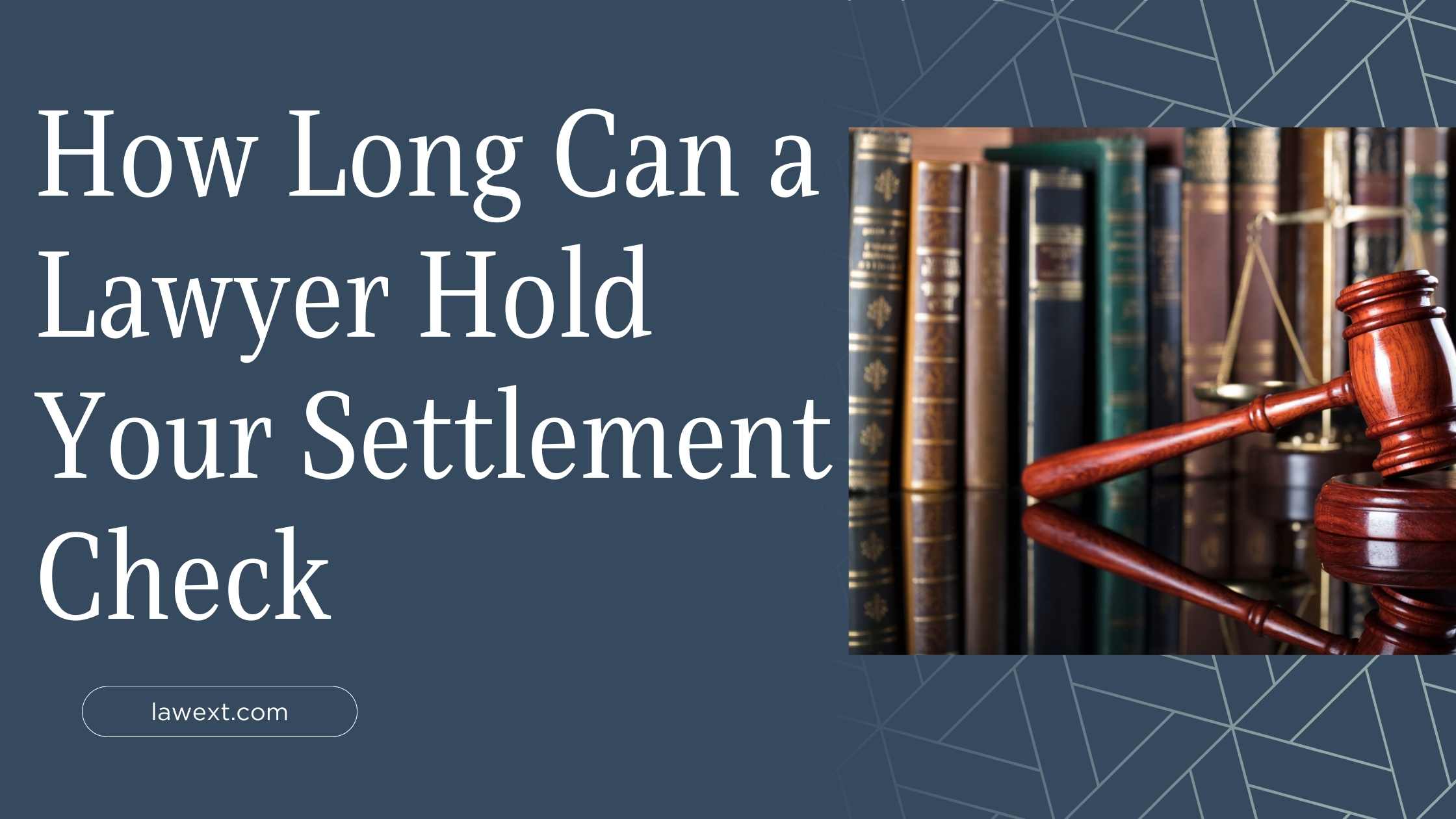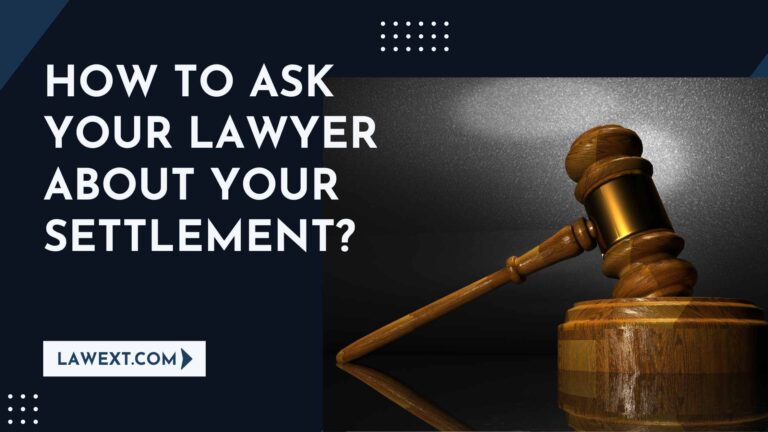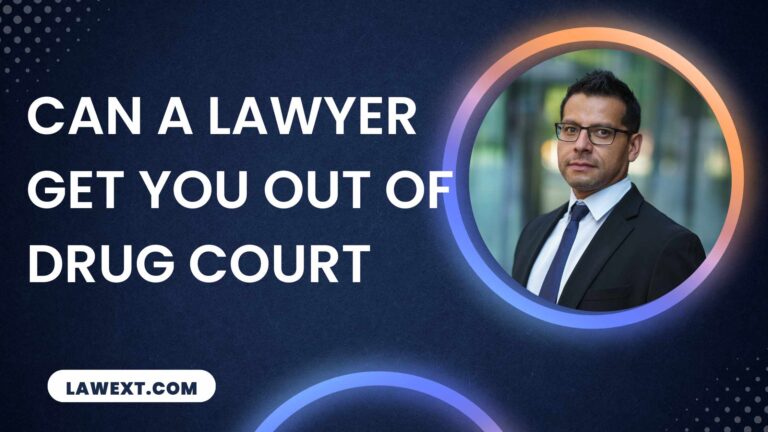How Long Can a Lawyer Hold Your Settlement Check?

A lawyer can typically hold your settlement check for five to seven business days. This time allows for proper check clearance and resolving any liens.
Table of Contents
How Long Can a Lawyer Hold Your Settlement Check? Settling a legal case often culminates in a sigh of relief, with the anticipation of receiving a settlement check. Reaching the resolution of a case, clients are eager to receive their funds. Understanding the timeline and process after a settlement is crucial, especially when financial planning hinges on these expected funds.
While patience is a virtue, especially in legal matters, knowing the standard duration a lawyer may hold onto a settlement check is essential for clients. This holding period ensures all legal obligations are met before the funds are released. Clarity in this aspect helps maintain trust and transparency between a client and their attorney, providing a smoother transition from settlement to receipt of funds.
Factors Affecting Settlement Check Processing
If you’re eagerly awaiting a settlement check, multiple factors could affect the processing time. Understanding these factors helps manage your expectations and gives insight into why delays sometimes occur.
State Laws And Regulations
Every state has its own set of laws governing the disbursement of settlement checks. These legal frameworks ensure fair and timely payments but can also introduce varying waiting periods.
- Some states may have strict timelines for payout.
- Others may allow more leeway, leading to longer wait times.
- Laws can also dictate how interests on delayed payments are handled.
Familiarity with local laws can provide a clearer timeframe for when you should expect your check.
Settlement Agreement Terms
The specific terms of the settlement agreement play a crucial role in the timeframe for receiving settlement checks.
- Parties involved may agree on a certain payment date.
- Details may include processing procedures for the check.
- Conditions might be set on clearance times by banks.
Ensure you understand the payment terms in your settlement to estimate when your check will be ready.

The Attorney-client Trust Account
After a legal settlement, you might wonder where your money goes before you get it. Lawyers use a special bank account to keep your settlement safe. This account has a big name: the attorney-client trust account. Think of it like a piggy bank that’s only for your settlement money. Lawyers have to use this piggy bank to make sure they follow all the rules.
Function Of Trust Accounts In Settlements
When you win a case, the money you get goes into a trust account. This is not the lawyer’s personal bank account. Your money is kept separate from the lawyer’s money. Here are some important points about this trust account:
- Safekeeping: Your settlement check is safe here.
- Separation: It’s not mixed with the lawyer’s money or used incorrectly.
- Payment: Bills connected to your case get paid from this account.
- Transparency: You can ask to see records of the money in and out.
Regulatory Compliance
Lawyers follow strict rules with trust accounts. This keeps everything fair and legal. Let’s break down these rules.
- Lawyers must keep records of each transaction.
- They can’t keep your settlement money longer than needed.
- They have to follow state laws for handling client money.
A board checks on these accounts to make sure lawyers are doing everything right. If they don’t, they can get in big trouble. Your money is protected by these rules so that you receive exactly what you are owed.
Typical Timeline For Settlement Check Disbursement
An important moment awaits for those who have reached a settlement in a legal case—the arrival of the settlement check. Understanding the Typical Timeline for Settlement Check Disbursement can provide clarity during this final step of a legal journey. After a hard-fought battle, knowing when the funds will be available is crucial for financial planning.
Receiving The Check From The Payer
The process begins once all parties have signed the settlement agreement. Generally, the payer—often an insurance company or the defendant—has up to 30 days to issue the settlement check. This time frame can vary based on state laws or the terms of the agreement. The lawyer receives the check on behalf of their client.
Clearance And Disbursement Process
After receipt, the settlement check undergoes a clearance period in the lawyer’s trust account. The clearance process ensures the funds are secure before disbursement. This step can last from 5 to 7 business days. Upon clearance, lawyers may allocate portions of the funds to cover any remaining legal fees, medical bills, or liens.
- Attorney Fees: Deducted based on the contingency fee agreement.
- Outstanding Balances: Medical providers or lien holders claiming a part of the settlement.
- Client Payment: The final amount disbursed to the client.
Once all deductions are settled, the remaining balance gets sent to the client. This is often completed through a check or a direct bank transfer. The entire disbursement process may take up to six weeks from the time of receiving the payer’s check. Clients should maintain communication with their attorneys to stay informed about the progress of their settlement check disbursement.

Reasons For Potential Delays
Receiving a settlement check can be a relief. Yet, sometimes it takes longer than expected. It’s not always clear why. Below are common reasons for settlement check delays.
Issues With The Payer
Settlement payments come from the losing party. They might not pay on time. Here are reasons why:
- Financial troubles: They may not have money ready.
- Sending errors: Checks can get lost or sent to the wrong place.
- Bank process: Banks sometimes hold checks. It takes days to clear.
A lawyer’s job is to follow up. They ensure you get paid. They talk to the payer or the court if needed.
Dispute Over Legal Fees
Lawyers get paid from your settlement. Legal fee disputes can delay this. Here’s what can happen:
- Agreement issues: Your contract may not be clear. The fees might be undecided.
- Unexpected costs: Sometimes, lawsuits cost more than planned. Lawyers must explain this.
- Court review: Courts may need to approve fees. This takes time.
The lawyer should clear fee disputes quickly. You should get a detailed bill. Ask questions if you are confused.
Your Rights And Legal Recourse
After a long legal battle, receiving your settlement check should be a relief. Yet, waiting for this final step can be taxing. As a client, understanding your rights and the legal paths you can take is crucial. If your lawyer holds your settlement check for too long, certain actions are available to you. This guide will explore your rights and what you can do if faced with delays.
Communicating With Your Attorney
Your first step should be to talk to your lawyer. Ask them for a timeline. Remember, transparency is key. Attorneys typically have strict rules for managing settlement funds. These rules prevent unjust holding periods. They must deposit your funds into a special account. This account protects your money until it’s time to distribute.
Here are things you can ask your lawyer about:
- Exact date the settlement was received
- Breakdown of fees and costs deducted
- Clear timeline for when you can expect your check
Actions If Delays Are Unreasonable
Unreasonable delays are not acceptable. If your attorney fails to communicate or delays seem excessive, protect your interests.
- Document all exchanges with your attorney
- Send a formal request for your settlement – This entails a written demand.
- Consider filing a complaint with the local bar association
- Seek help from another attorney if necessary
State laws may differ, but attorneys generally have a short window, often 30 to 60 days, to process settlement funds.
Preventing Delays And Ensuring Prompt Payment
Waiting for a settlement check can be stressful. Quick payment is crucial. Lawyers might delay; know the tricks to prevent this. Let’s dive into ensuring your lawyer expedites your settlement check.
Efficient Legal Practices
Top-notch law firms follow efficient practices. These practices cut down on internal delays. They make sure nothing slows down your settlement.
- Case tracking systems
- Timely document management
- Regular client updates
These steps lead to faster settlements and clear the path for prompt payment.
Establishing Clear Communication Channels
Clear communication prevents misunderstandings. It’s essential between you and your lawyer.
Setting expectations about timelines and processes avoids confusion. Ensure all contact information is up-to-date.
| Contact Method | Best Practice |
|---|---|
| Check daily, respond to lawyer promptly. | |
| Phone | Keep ringer on during business hours. |
| Meetings | Schedule regularly, confirm timelines. |
This table shows simple ways to stay in touch. Strong communication channels mean faster settlements.
Conclusion
Understanding the timeline for receiving your settlement check is crucial. Lawyers usually resolve this promptly, adhering to legal standards. Every case varies, yet clear communication can speed up the process. Remember to discuss these details with your attorney to align expectations and avoid unnecessary stress surrounding your settlement timeline.
Amelia Justiceberg, a distinguished legal luminary, thrives on the intersection of empathy and legal acumen. As a prominent family law attorney, she orchestrates compassionate resolutions amidst complex dynamics. Justiceberg's courtroom finesse and dedication to fairness define her practice. Beyond litigation, she ardently advocates for social justice, solidifying her reputation as an influential force in the legal landscape.






